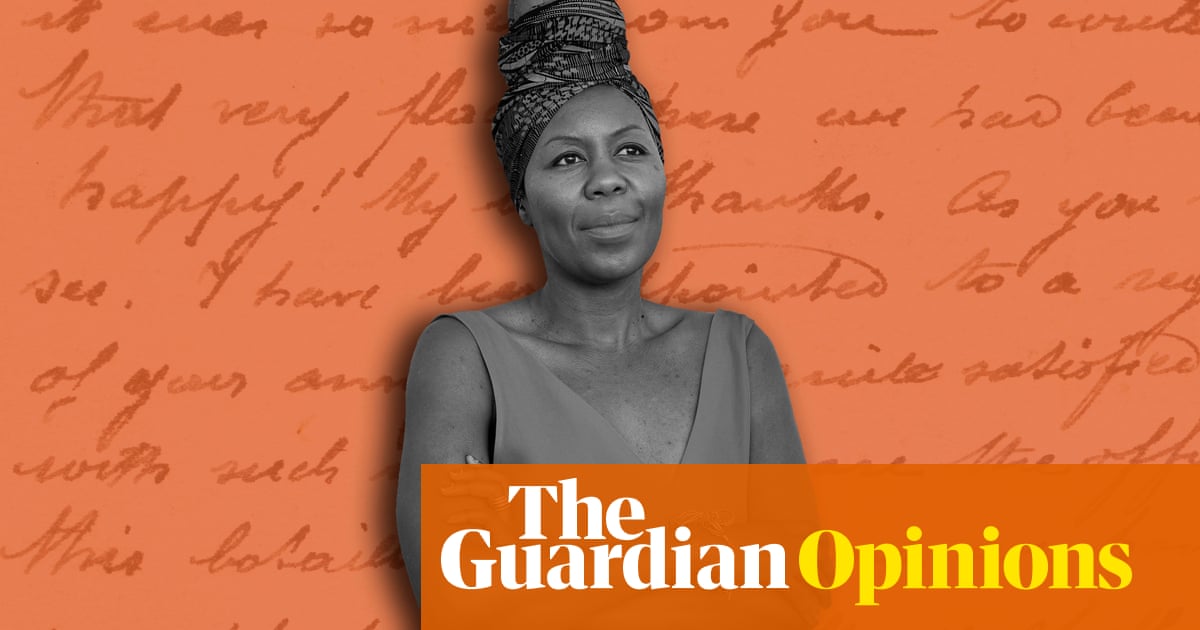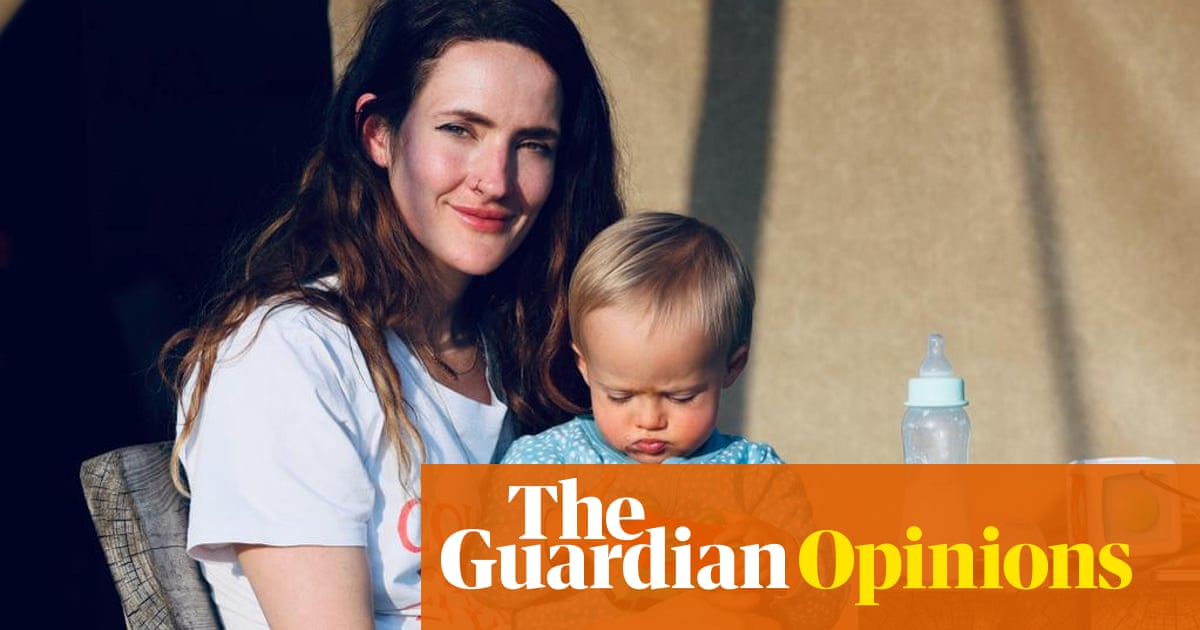
unday morning. I walk down to the beach with the dog straining at her lead. I’m already on high alert. It’s the moment in the week when people are most likely to be wandering along the seafront, feeling chatty. I’m mentally priming myself, sorting through the categories I might encounter: parents from the schoolyard (hopefully with their children), people I’ve worked with (increasingly hopeless), neighbours from the surrounding streets (no chance). I should have gone to the woods today. It’s too risky.
I cross the road and hear, “Katherine! Hello!” I wonder if I can get away with pretending I didn’t notice. I’m wearing earbuds, which is usually a good precaution, but this woman is determined. She crosses the road diagonally, waving. “How the hell are you?” she says. Straight hair, mousy blonde. No glasses, no tattoos. Jeans, a grey sweatshirt. For God’s sake, why are these people so studiedly ordinary? I fidget with my phone, trying to buy time. Her face is plain. I don’t mean plain as in “ugly”. I mean plain as in vanilla: bland, unremarkable. There’s nothing here that I might have stored in words. Her nose is straight. Her eyes are blue. Her teeth are orderly. And she knows me.
“Hi!” I say, as warmly as possible. “How are you?” This can sometimes elicit clues. Not today. One of the many side-effects of being face-blind is that you become uncomfortably aware of the ordinariness of most interactions. We have stopped in the street to say absolutely nothing to each other. And only one of us knows the context.
The dog lunges to her feet and pulls in the direction of the sea. “Looks like she’s desperate to get going!” I say, laughing, “So sorry! Lovely to see you!” And I’m off at a gallop before this woman, whoever the hell she is, can think about joining me.
I didn’t always know I was face-blind. I grew up thinking that I just didn’t remember people. This, as a friend once told me, seemed a lot like arrogance – an aloof lack of interest in others. But that’s not how it felt on the inside.
I was mostly fine in the closed world of primary school, but when I moved up to secondary, I was immediately disoriented. The corridors were full of teachers I couldn’t identify, and pupils I couldn’t tell apart. As we grew older, the girls in my class developed collective crushes on certain boys from the school across the road and I learned to fake my way into those conversations, rhapsodising about faces that were blank to me.
I barely got to know anyone at university. Unless they lived in my building, they were all part of the general blur of boys with floppy hair and girls in ponytails. I couldn’t recognise them individually, so I didn’t learn their names. I put it down to not fitting in. Back home in the holidays, I thought my ex-boyfriend had moved into a house in the next street. I chatted to him quite often, falling into step with him as we both walked towards the town. It took several weeks for me to realise that he was, in fact, a complete stranger.
It’s not just that faces don’t stick in my mind; they also shift beneath my gaze while people are standing in front of me, and I seem to only be able to perceive them in fragments that won’t piece together as a whole. I routinely struggle to identify those closest to me. The afternoon after my husband had his long hair cut short, I managed to stand next to him asking friends, “Has anyone seen H?” In the three years we lived apart while I was at university, I never could bring his face to mind.
I couldn’t pick out my own son from all the other little blond boys at nursery, and still now in the playground I often have to ask other parents if they can spot him. If I know them well, I can explain. If I don’t, I have an armoury of excuses. He moves too fast! He’s jettisoned his coat! He must have been hiding!
It is a shameful thing for a mother not to recognise her son, but then again I could sniff him out blindfolded in a crowd. I would know his voice anywhere, the way he walks, the perpetual motion of his face. This is how I remember people. I can do a lot of work with the flow of an upper lip as someone talks, with a gait, with the timbre of a voice. I can store certain people in words. There was a man at my last workplace whose moustache grew outwards like a rosette. It fascinated me anew every time I saw it, and I always recognised him, while routinely blanking the members of my team.
At least I knew what it was by then. I only learned the term in my mid-30s, when I read a tweet by Philippa Perry explaining her own face-blindness, and the embarrassment when she’s unable to identify seeming strangers at events. It was a heart-stopping moment for me; a spark of grateful recognition. “Is that an actual thing?” I replied. “An actual condition? I’m not just a terrible person?”
Now, when I mention it online, somebody usually pops up to tell me it’s actually called prosopagnosia, as if that makes any difference. The opaque scientific name does nothing to assist me, so I routinely forget the word like I’d forget a face. Research is in its infancy, but we know that face recognition is dependent on a network of brain regions across the right and left hemispheres. There is so much that can disrupt these connections, and so it’s likely that there are multiple ways of being face-blind.
I used to compare notes with my former colleague Carolyn Oulton, a professor of English literature whose ability to recognise people seems even more limited than mine. Carolyn sought a formal diagnosis in the hope of making her working life easier, but discovered that her disorientation extended to places and shapes, too. “I now know I can’t call it prosopagnosia because it’s broader than that,” she tells me. “I’m left saying ‘I’m bad with faces,’ which is exactly where I started.”
I’ve never bothered with a diagnosis. I’m not sure what it could do for me. There’s no treatment and certainly no cure. Even if there were, I’m not sure I’d take it. Strange as it seems, my face-blindness feels innate to me. Carolyn agrees: “I don’t know if I enjoy being face-blind, I just know that I’ve created a way of understanding it as part of the way I navigate life,” she says. “To change that would be like suddenly having a different name.”
However, another face-blind friend, who prefers to remain anonymous, would love to find a cure. “I’m an extrovert. I need people,” she says. “Face-blindness is a terrible blight on that. I’ve offended too many people by walking past them in the street, and I’ve spent too many parties thinking I don’t know anyone when I know plenty of people. I feel quite vulnerable around it.”
Perhaps that’s an insight into why I’m more accepting of my own face-blindness – it’s the perfect complement to my introversion; to my sense that I don’t really want to socialise anyway. The two conspire together – it’s the perfect pairing. I’m best off avoiding busy rooms, because they exhaust me, and my prosopagnosia relieves me of having to process all those different personalities.
I increasingly use my face-blindness as a sorting device. I tell people about it on our first meeting, and the way they behave after that reveals a lot. Some are touchingly helpful – one friend always finds a way to shoe-horn her name into the first sentence while I orient myself – but I’m surprised at the number of people who don’t think I’ll be blind to their face, uniquely. They seamlessly translate my face-blindness into a failure to love them enough, rather than a neurological difference. Disclosing it has become a reliable measure of people’s kindness, their neediness, their ability to put their ego aside.
But there are other things that leave me attached to it. Faces that I’m told are beautiful, the models and actors with compact features and perfect symmetry, all look exactly the same to me. They are frictionless, offering nothing on which I can anchor my gaze, and my eyes slide off them. I don’t understand why they are so lovable to everyone else. To me, they seem hard and resistant.
The faces I fall in love with are distinctive. They have broken noses and wrinkles, crooked teeth and diagonal smiles. They are individual. They signal wisdom, a life lived. I can’t help but be grateful for these faces. More than that, I recognise my loved ones just as intensely as a person who could bring their faces easily to mind. My sense of connection is multi-faceted, engaging all my senses, and it’s full of wonder, because each time I look at them, I am seeing something new. I know them no less deeply. I just find my home in a different way.












